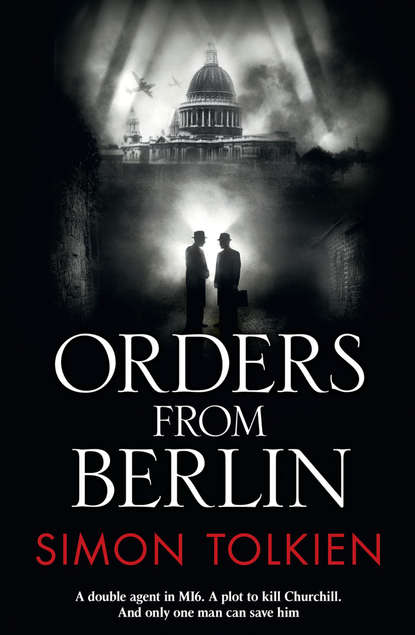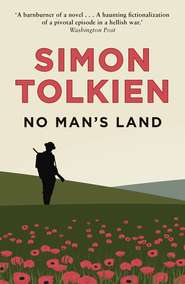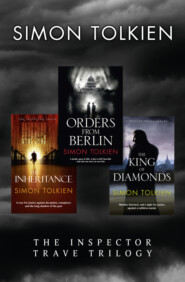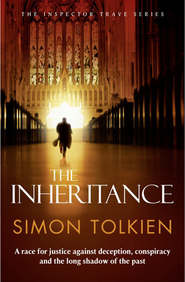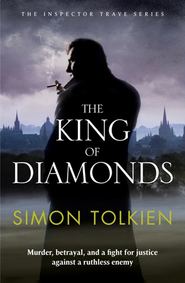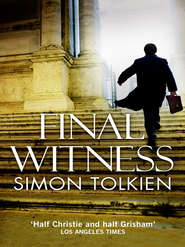По всем вопросам обращайтесь на: info@litportal.ru
(©) 2003-2024.
✖
Orders from Berlin
Автор
Год написания книги
2018
Настройки чтения
Размер шрифта
Высота строк
Поля
‘A few coins in the right trouser pocket; a couple of keys on a ring. That’s it.’
‘Okay. Let’s go talk to the daughter, see if she knows something. There’s no point standing around doing nothing, waiting for the death wagon to get here.’
‘Are we still taking her upstairs?’ asked Trave.
‘Yes, why not?’
‘I just don’t want her to see her father again, that’s all. I don’t think she can take much more.’
‘Fine,’ said Quaid impatiently. ‘Get a sheet or something. The old woman must have one spare.’
Left on his own in the hall, Quaid scratched his head absent-mindedly as he looked down at the smashed-up corpse that had less than an hour before been a sixty-year-old man called Albert Morrison. The sight didn’t upset him. In the last three months he’d seen far worse – soldiers at bomb sites picking up bits of arms and legs and putting them in potato sacks as if they were working in a harvest field; blast victims fused into the walls of their homes; even once a severed head staring down at him from an oak tree that had been stripped of all its leaves by a land mine explosion.
No, the dead man was a puzzle. That was all. And solving the puzzle shouldn’t be too difficult once all the clues were assembled. For now, Quaid had to be content with speculation. What had happened upstairs? he wondered. Had the old man come home and surprised a burglar, who’d pushed him down the stairs? The answer to that was almost certainly no – Quaid thought Trave was most likely right that the killer hadn’t come in through the fire escape door, and from what he’d been able to see when he was upstairs, there were no signs of forced entry on the entrance door to the flat. And given that the front door of the building appeared unscathed as well, the likely explanation was that someone had let the killer in. All the tenants in the building would have to be questioned, obviously, but Quaid’s intuition told him that it was Morrison who had opened the door. Perhaps the killer had followed Morrison home or perhaps he had been waiting at the door. Either way, he had targeted the old man. Why? To steal from him? The daughter would be able to tell them if anything significant was missing, but as far as Quaid had been able to see from a cursory inspection, there hadn’t been any items of obvious great value in the flat – a lorryload of boring academic books, certainly, but in Quaid’s experience people didn’t get killed for their books. So if it wasn’t to steal, why had the killer come? Perhaps to talk about some matter of mutual interest. According to statistics, most murderers knew their victims, and Quaid had a great deal of faith in statistics. Perhaps the professor and his guest had got into an argument and the argument had got out of hand. Throwing your victim over the banister was certainly an unlikely method for premeditated murder. So much could go wrong in a struggle even with a weak opponent – one false move and the would-be murderer could easily end up falling down the stairs himself.
The professor! Quaid realized that he’d already unconsciously given the victim a nickname. It was a habit he’d developed with all his cases, and then afterwards when they were solved, the names became a filing system in his mind – useful in its way. The sailor for the man who’d drowned under Lambeth Bridge, held down under the water by his brother’s boat hook; the nun for the pious lady in Clerkenwell murdered for her savings by the drug-addicted lodger who lived in her attic; the prime minister for the man who looked like an oversize version of Churchill, dispatched by his wife with a bread knife one evening because she couldn’t stand to listen to him barking orders at her any more. And now the professor – killed by one of his students, perhaps, or an academic rival.
A loud knocking at the front door recalled the inspector from his reverie. Trave had still not returned, so Quaid walked over to the door and opened it, and then had to step back quickly as an overweight man in a green tweed suit almost fell past him into the hall, coming to a halt in front of the still-uncovered dead man on the floor. The newcomer was red in the face and breathing heavily, but it was hard to say whether that was from the shock of what he was now seeing or from the haste of his arrival.
‘Oh, God,’ he said, stepping back. ‘That’s Albert.’
‘How do you know?’ asked Quaid, sounding surprised. ‘His face is smashed beyond recognition.’
‘Because of his clothes. What the hell has happened here?’
‘And who might you be, if you don’t mind me asking?’ asked Quaid, ignoring the newcomer’s question.
‘Dr Brive, Bertram Brive – I’m his son-in-law.’
‘And what brings you here, Doctor? Nobody’s called for medical assistance as far as I know.’
‘I was worried about my wife. I called home when I heard the siren and she didn’t answer, so naturally I assumed she was over here.’
‘Where were you?’
‘At work. My surgery’s near here – in Battersea High Street. Why are you asking me all these questions?’
‘Because I’m a police officer investigating a murder. It’s my job to ask them.’
‘A murder! Why do you say that?’ asked Brive. He sounded panicked suddenly, and his hands had begun to shake.
‘Your father-in-law was pushed. It was your wife who saw it happen, as a matter of fact.’
‘Did she see who did it?’
‘No, more’s the pity. It was too dark, apparently, but we’ll find the person responsible. You can count on that.’ The urgency with which Brive had asked his last question hadn’t escaped Quaid’s attention.
‘I’m glad to hear it,’ said Brive, sounding anything but glad. ‘Where’s my wife? Is she still here?’
‘Yes, in there,’ said Quaid, pointing to the open door of the ground-floor flat through which Trave was just now emerging with a sheet to cover up the corpse. ‘We were just going to ask her to go upstairs and see if anything’s missing. Perhaps you’d like to come too.’ It was framed as an invitation, but Quaid made it sound more like an order.
But it evidently wasn’t one that the doctor was reluctant to obey. Instead of going to find his wife, he started up the stairs until Quaid barked at him to stop. Trave went back to fetch the dead man’s daughter.
Brive took a step towards his wife when she came out into the hall, then stopped abruptly, reacting to the way she seemed instinctively to draw back away from him.
‘Ava,’ he said, clasping his hands in front of his chest as if he were about to make a speech. ‘I’m very sorry about what’s happened here. Do you have any idea who might have done this terrible thing?’
Ava shook her head, staring mutely at her husband with a half-sullen, half-defiant expression that Quaid couldn’t quite decipher, but he was even more struck by the stilted, almost formal way the doctor spoke to his wife. He would have liked to see more of the interaction or lack of it between them, but Brive turned away and began to go up the stairs.
CHAPTER 3 (#ulink_973aa544-3abd-5b62-8639-9627bf0820e2)
Quaid followed the doctor up the stairs, with Trave and Ava bringing up the rear. Brive climbed quickly, taking the stairs two at a time, and when the two policemen arrived in Albert Morrison’s book-lined sitting room a minute later, they found the doctor on his hands and knees, picking up the papers that were strewn across the floor – the same heap of documents that Trave had drawn Quaid’s attention to earlier.
‘What the hell do you think you’re doing?’ Quaid demanded, taking hold of Brive’s arm with one hand and removing the papers that the doctor was holding with the other.
‘What do you think? I’m clearing up the mess,’ said Brive, pulling away.
‘No, you’re bloody well not. You’re interfering with the evidence. That’s what you’re doing. And if you carry on, I’ll put you in handcuffs. Do you hear me?’
Brive didn’t answer but instead turned away with a surly expression on his face, nursing his arm as his wife came past him into the room. Quaid kept his eyes on Brive, noting how he kept shifting from one foot to the other, unable to keep still, and how he couldn’t stop nervously rubbing his hands together all the time, as if he were unconsciously trying to wash away the evidence of some recent transgression, while his eyes kept darting back towards the documents on the floor as if he were considering another move in their direction.
Quaid prided himself on being able to tell if a man was lying or hiding something from him, and this medicine man with the funny foreign-sounding name was doing both. Quaid was sure of it. From the moment he’d clapped eyes on him, the inspector had taken an instant dislike to the victim’s son-in-law. He distrusted the fussy triple knot in Brive’s navy-blue bow tie, and it worried him that half of what the doctor said just didn’t add up. Brive said he’d come over because he was concerned about his wife’s safety during the air raid, but then he’d shown no interest in going to her side when he’d discovered that she’d been a witness to her father’s murder. Instead his priority had been to get up the stairs and start interfering with the evidence. And then there was the way that Brive had shown up at the crime scene minutes after the police, even though by his own admission no one had telephoned him or asked for his assistance. He said he was looking for his wife, but why had he been so certain that she was going to be at her father’s?
It was a damned shame that the dead man’s daughter hadn’t got a look at the man who’d pushed her father – too dark, apparently, like everything else in the damned blackout.
‘You say your father was saying “no”. Is that all? Did you hear anything else?’ Quaid asked, turning to the dead man’s daughter. Ava, she was called – a pretty woman with a pretty name. God knows how she’d ended up married to this creepy doctor, Quaid thought, shaking his head.
‘He said: “No; no, I won’t. No, I tell you.” I could tell he was frightened – he kept saying “No”. And there was someone else saying something, but his voice was soft. I couldn’t hear any of the words.’
‘His – so it was a man?’
‘I don’t know. I assume so,’ she said, turning away. He could see that she’d started crying again. Perhaps he shouldn’t have started out with asking her about the murder, but where the hell else was he supposed to start?
‘Okay,’ he said, frowning. ‘I understand. Let me ask you this: Do you normally come over here when there’s a raid?’
‘Sometimes,’ she said in a barely audible voice. ‘It depends.’
‘On what?’
She opened her mouth to speak, but the words didn’t come. Instead she bit her lip and looked away, out of the window towards the wandering beam of a lone searchlight still operating out of the park opposite, despite the sounding of the all clear. The woman was in a bad way. That much was obvious. Quaid felt sorry for her. Her husband, standing morosely over by the door with a sullen look on his face, wasn’t giving her any support at all. The only person who was trying to help was the old lady from downstairs, who’d followed them up the stairs with a cup of tea, which now sat untouched on the low table beside Ava’s chair.
The kind thing would have been to allow the poor woman to go home and sleep, but Quaid resisted the temptation to let her go. He needed to get her version of events while it was still fresh in her mind.
‘Look, have some of this tea,’ he said in a kindly, fatherly voice, picking up the cup and wrapping the woman’s shaking hand around the handle. ‘It’ll make you feel better.’
‘We don’t drink tea. We never have,’ said Bertram, talking over Quaid’s shoulder.
Quaid couldn’t believe what he was hearing; he almost dropped the cup. Everyone drank tea. It’s what British people did to get them through the horrors – make it, distribute it, drink it. It was downright unpatriotic not to like it.





